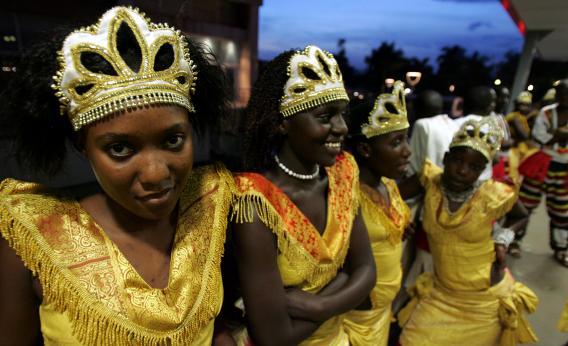Today in misleading science reporting: headlines screaming about a study that supposedly demonstrated that “dominant women have less sex.” That is, women who have more power in their heterosexual relationships have less sex. You can hear the gleeful squeals of anti-feminists all over the Internet: finally, proof that women’s happiness is dependent on their submission! Woooo!
I’d put down those party favors, however, because the study showed no such thing. First of all, the term “dominant” is misleading. The word should really only be used to describe people who are actually, you know, dominant. That a woman is less submissive and/or more empowered than the average woman doesn’t actually make her “dominant.” If you read the researchers’ own words regarding the study, you’ll find that they never say that the women studied actually dominate their husbands, just that the more household decisions a woman makes, the less sex she has. That someone makes even half of the household decisions doesn’t make her dominant.
Second of all, the reporting exagerrates the findings. It is true that the highest end of empowered women—that is, women who were able to decide what toothpaste to buy and when to visit friends—reported reduced sexual activity by three- to 100-fold, but that doesn’t mean they’re not having sex. The majority of the women in the study had sex in the last month, after all.
But most importantly, these studies were conducted in Ghana, Malawi, Mali, Rwanda, Uganda, and Zimbabwe, places that are culturally different when it comes to gender and sexual norms compared with the United States and Great Britain, where this study was gleefully reported with anti-feminist glee. Most articles about this study grudgingly admit the geography of the study, but by and large, the coverage is such that a cursory glance over the articles (aka, three-quarters of the readership looking at it) will incline you to think that they studied Americans and Brits. Every single story I looked up covering this study that had an illustration (including Jezebel!) showed a picture of a Western-looking couple. None of the pictures made any reference to the actual people interviewed for this project. This kind of coverage is distressing for two reasons: 1) It creates a misleading impression of what the results of the study mean for gender relations and 2) it erases the experiences of the women in these African nations that lead to these findings. It insinuates that there’s a “natural” balance of power and sex in a relationship that can be considered outside of cultural norms, which is simply not true. As at least one article covering this story noted, for instance, household decision-making power might not be an indicator of real power so much as simply more responsibility. But more importantly, we can’t assume that less sexual intercourse is a bad thing for these women. For many women, fewer bouts of intercourse might mean more sex that is mutual and involves protection to prevent unintended pregnancy and STI transmission. I looked up the HIV prevalence rates in these countries, and found that it ranged from 1.5 percent to 13.6 percent. Compare that to the U.S. HIV prevalence rate of .3 percent. In many sub-Sahran African nations, a woman’s chance of getting HIV rises exponentially when she marries, which is again the opposite of what it’s like in the United States. Equating the sexual choices of empowered women across cultures in light of these cultural differences is simply irresponsible.
Research in the United States on gender equality and sex show much different results. For instance, men who share household chores more equally (which would no doubt be chalked up to marriage to “bossy” wives who make honey-do lists) find themselves getting down in the bedroom with their wives more often. Women’s economic and social gains have correlated to a dropping divorce rate, a correlation many experts find significant because it suggests that people are simply happier in the romantic partner-style marriage rather than the traditional male-dominated form. And of course, even research conducted by “evolutionary psychologists” with a misogynist agenda can’t help but turn up findings that demonstrate greater social equality for women leads to women wanting to have more sex.
Which isn’t to say that I object to this original research study conducted by researchers at Johns Hopkins. Their public statements suggest to me that they are looking for ways to reduce the prevalence of unprotected, unfulfilling sex, especially in places where the threat of HIV makes the situation all the more dire. Exploiting their hard work for cheap anti-feminist thrills is disgraceful.
